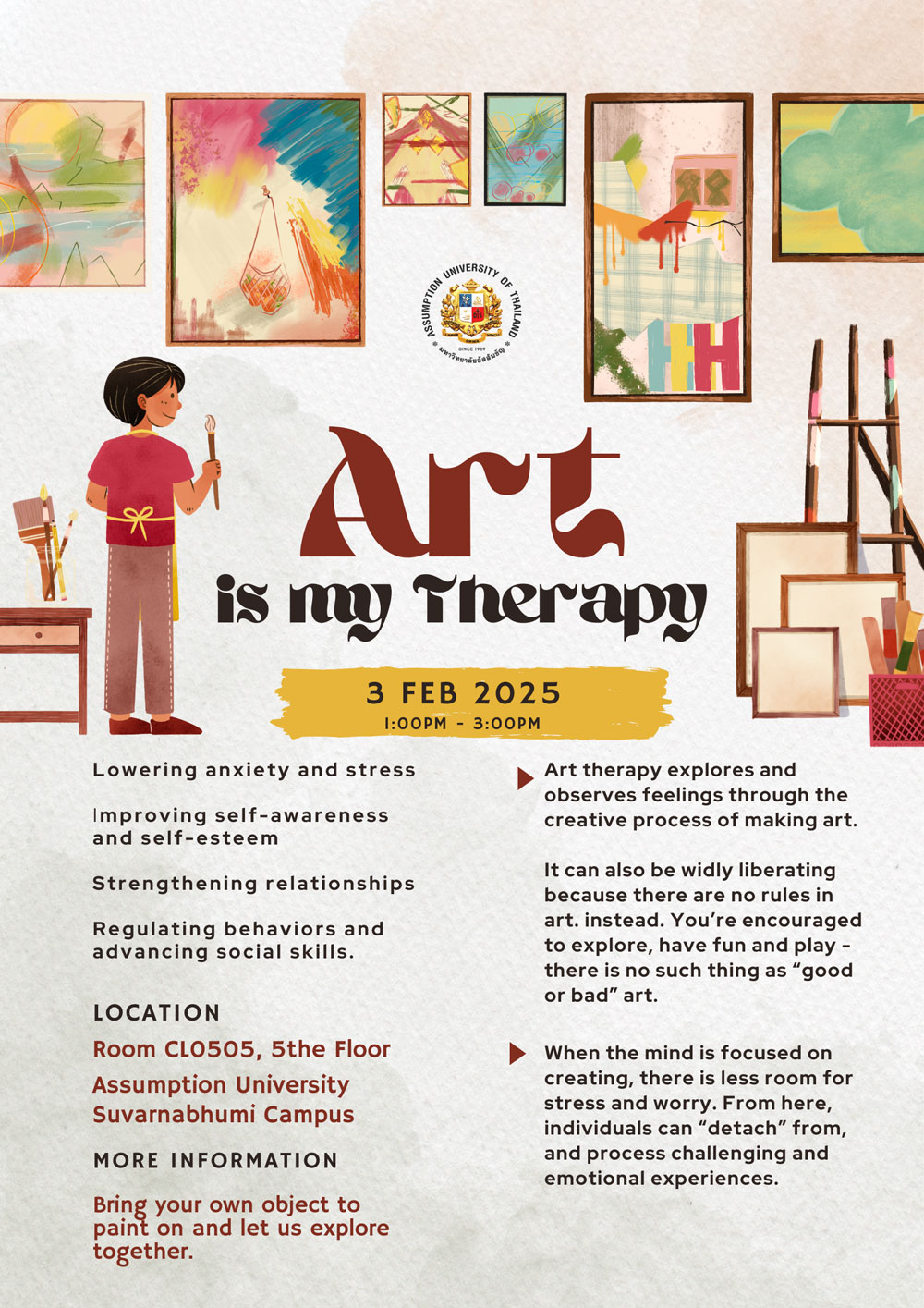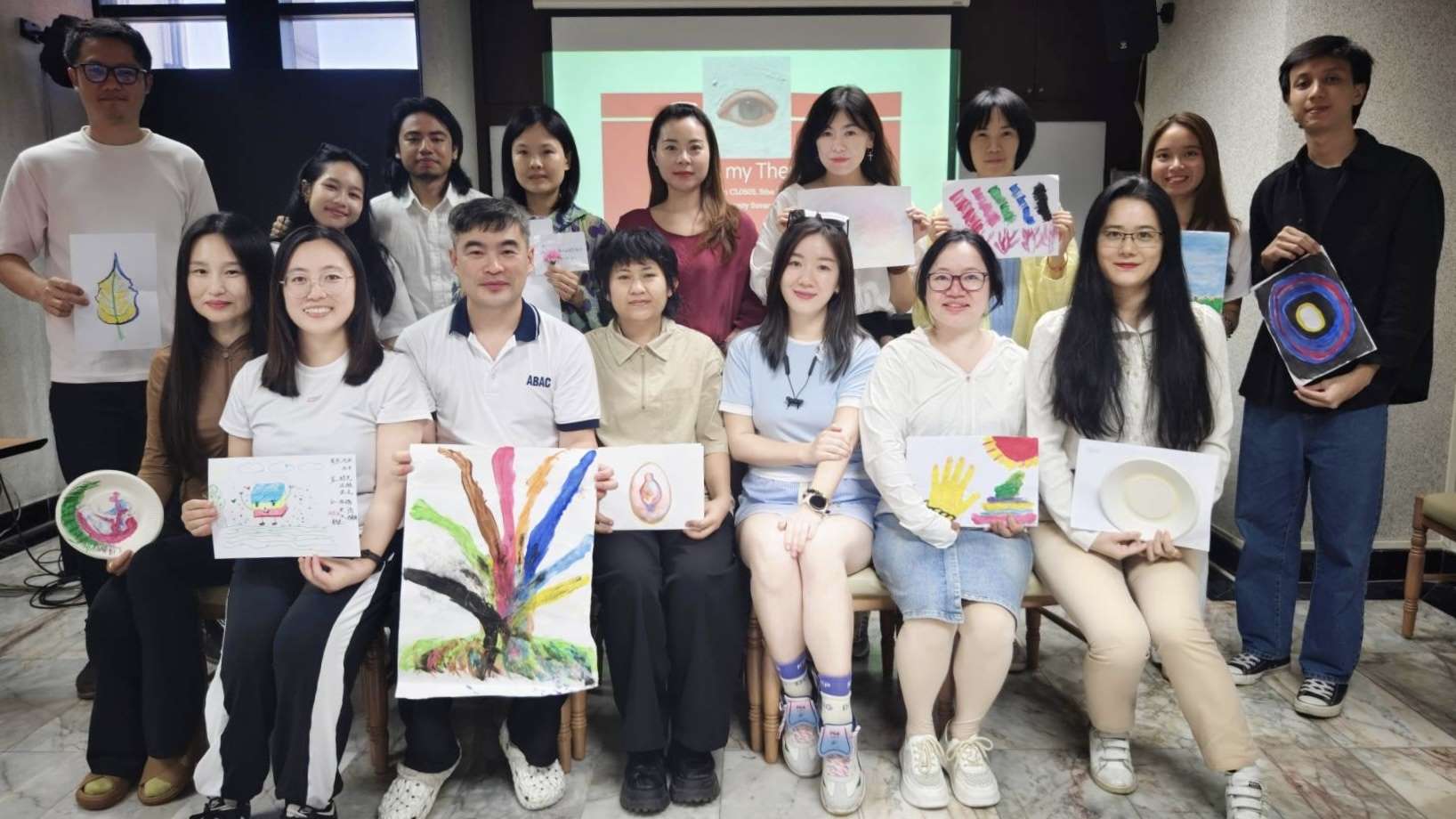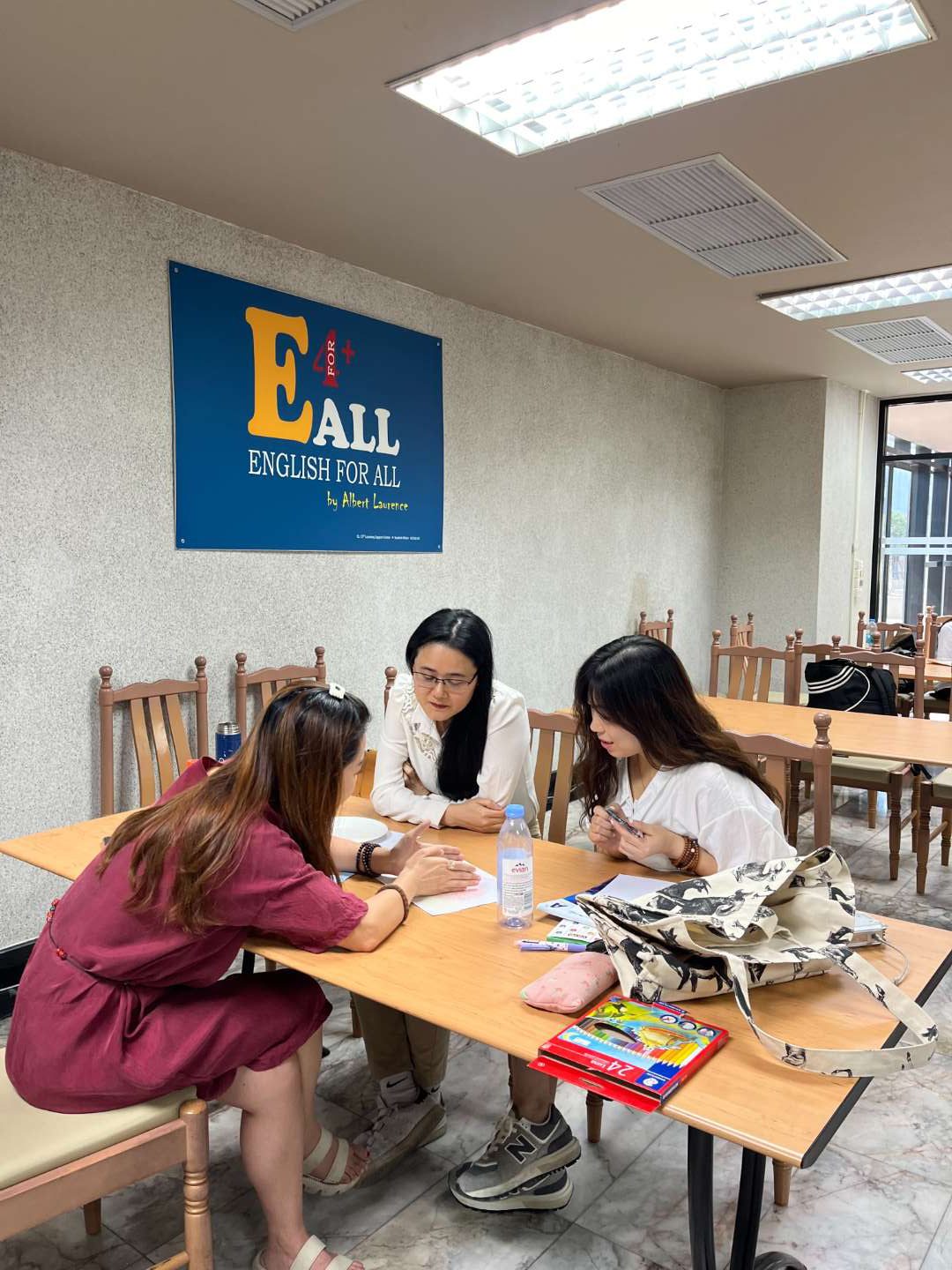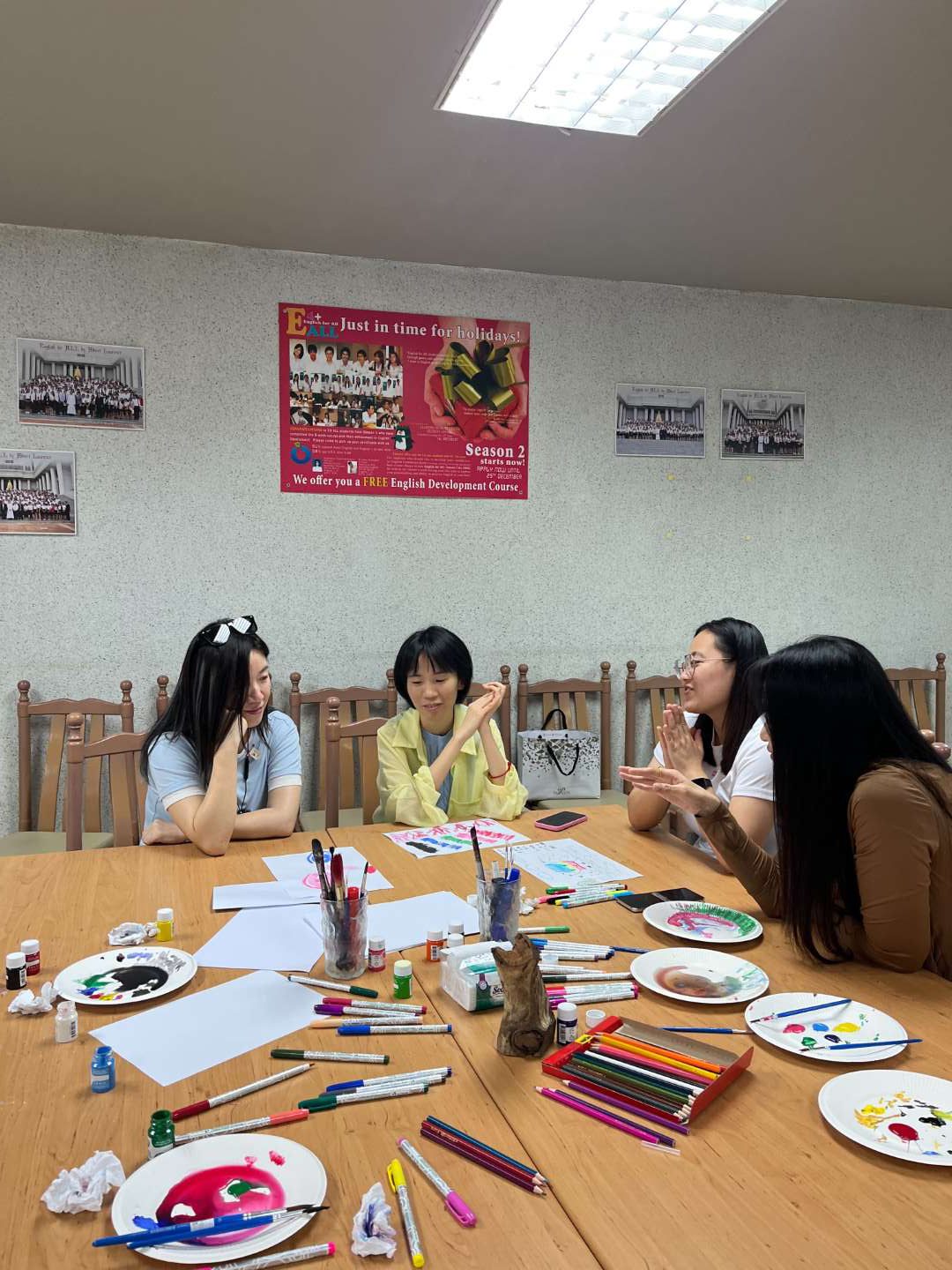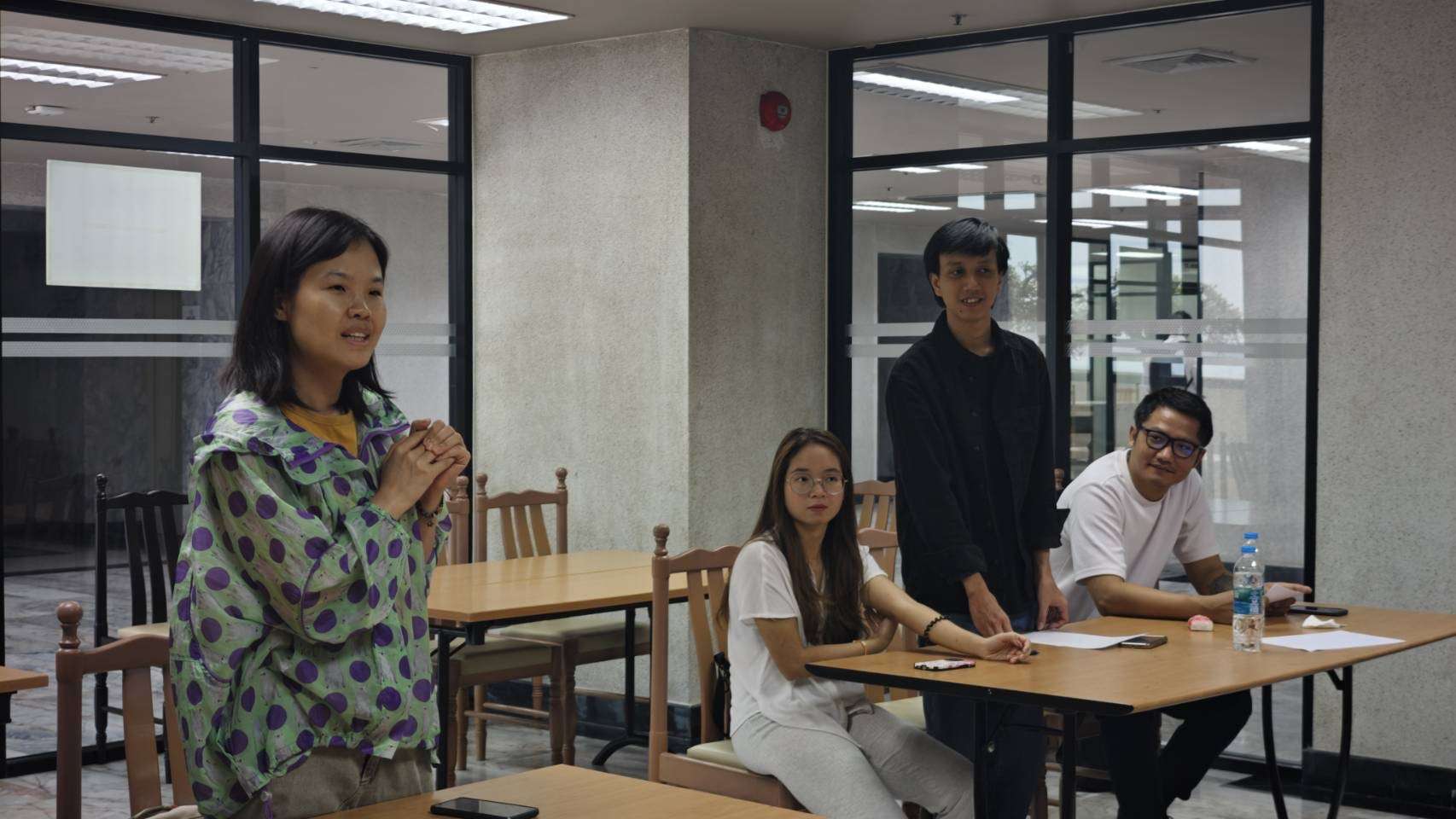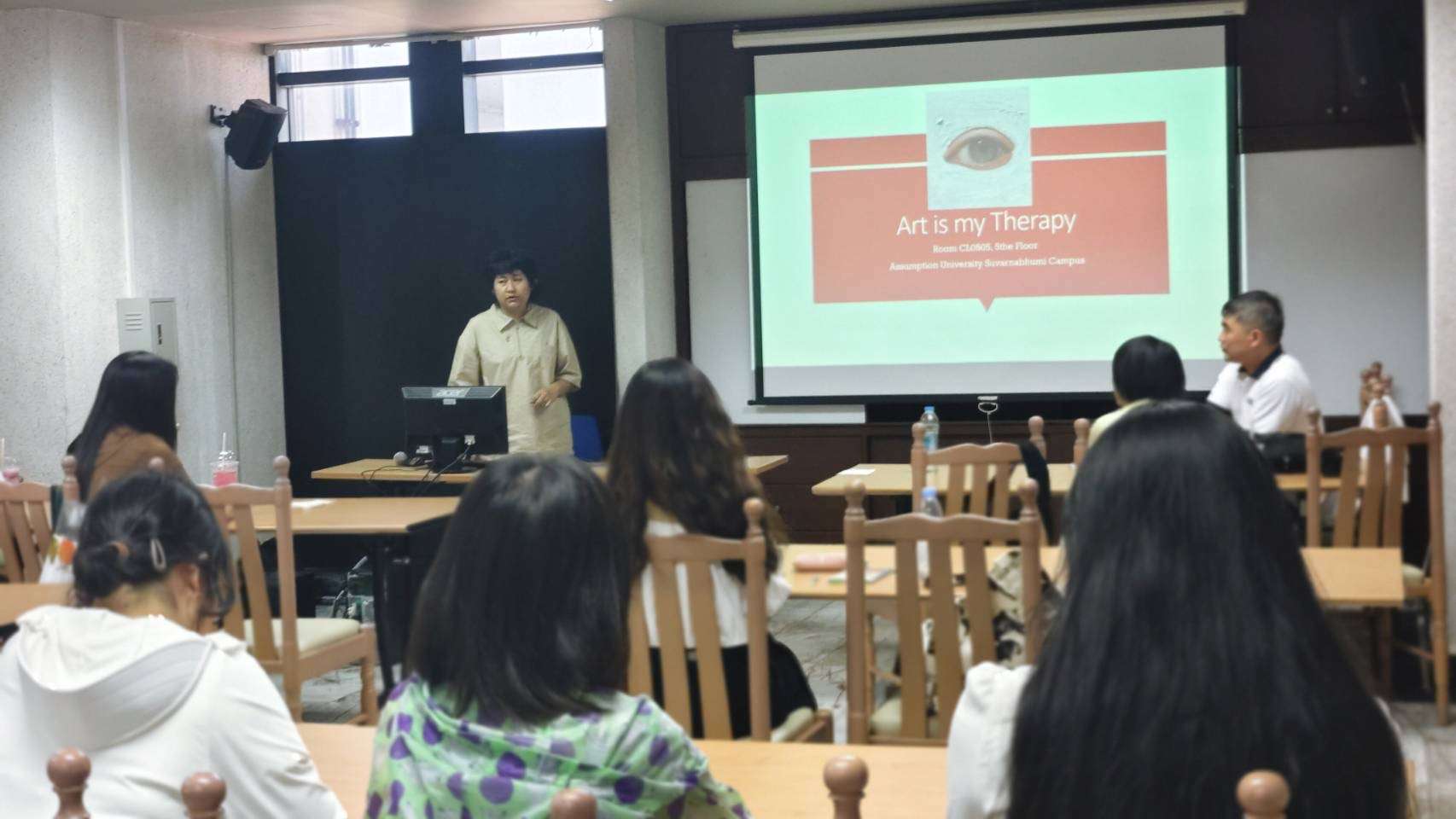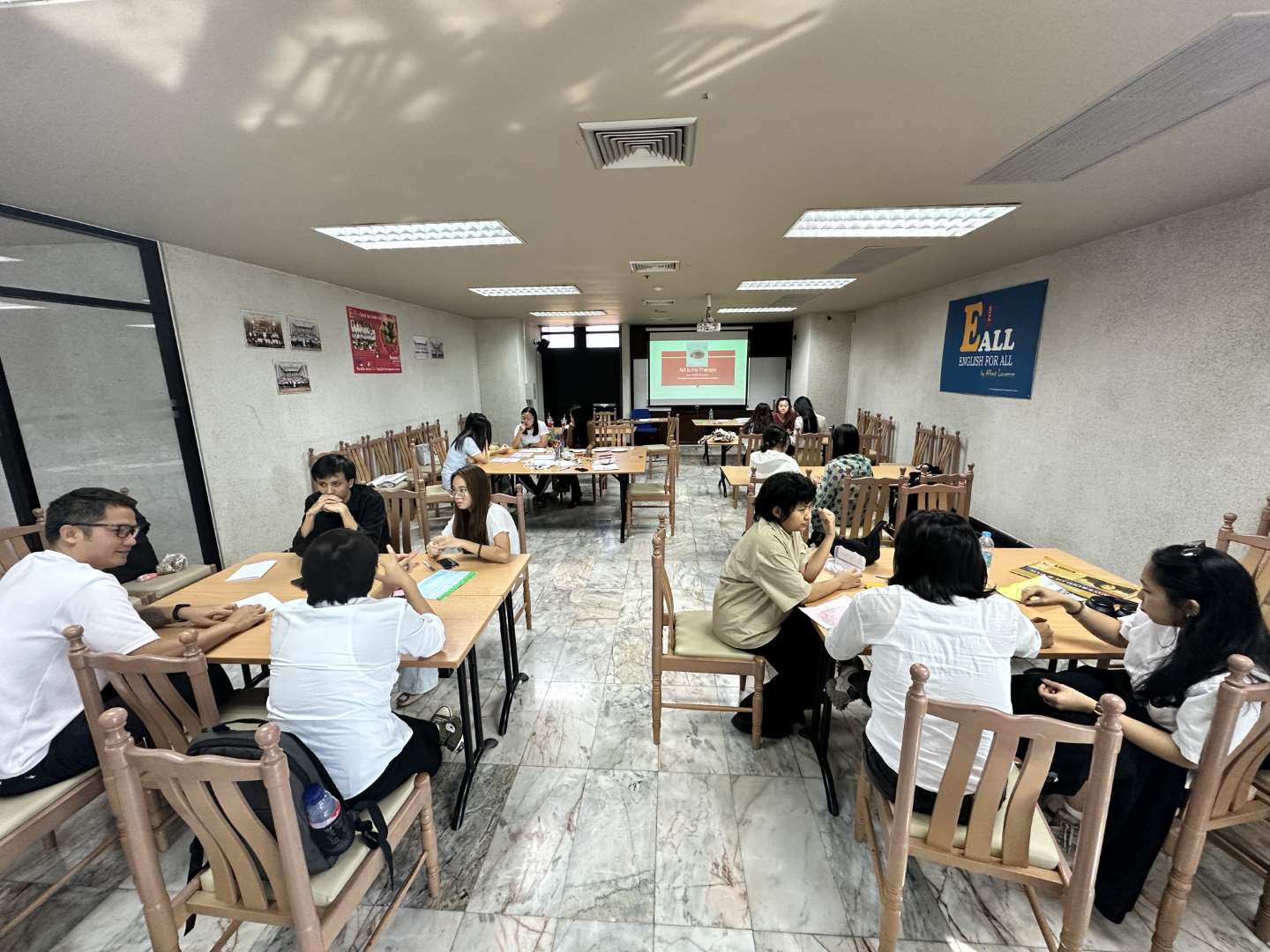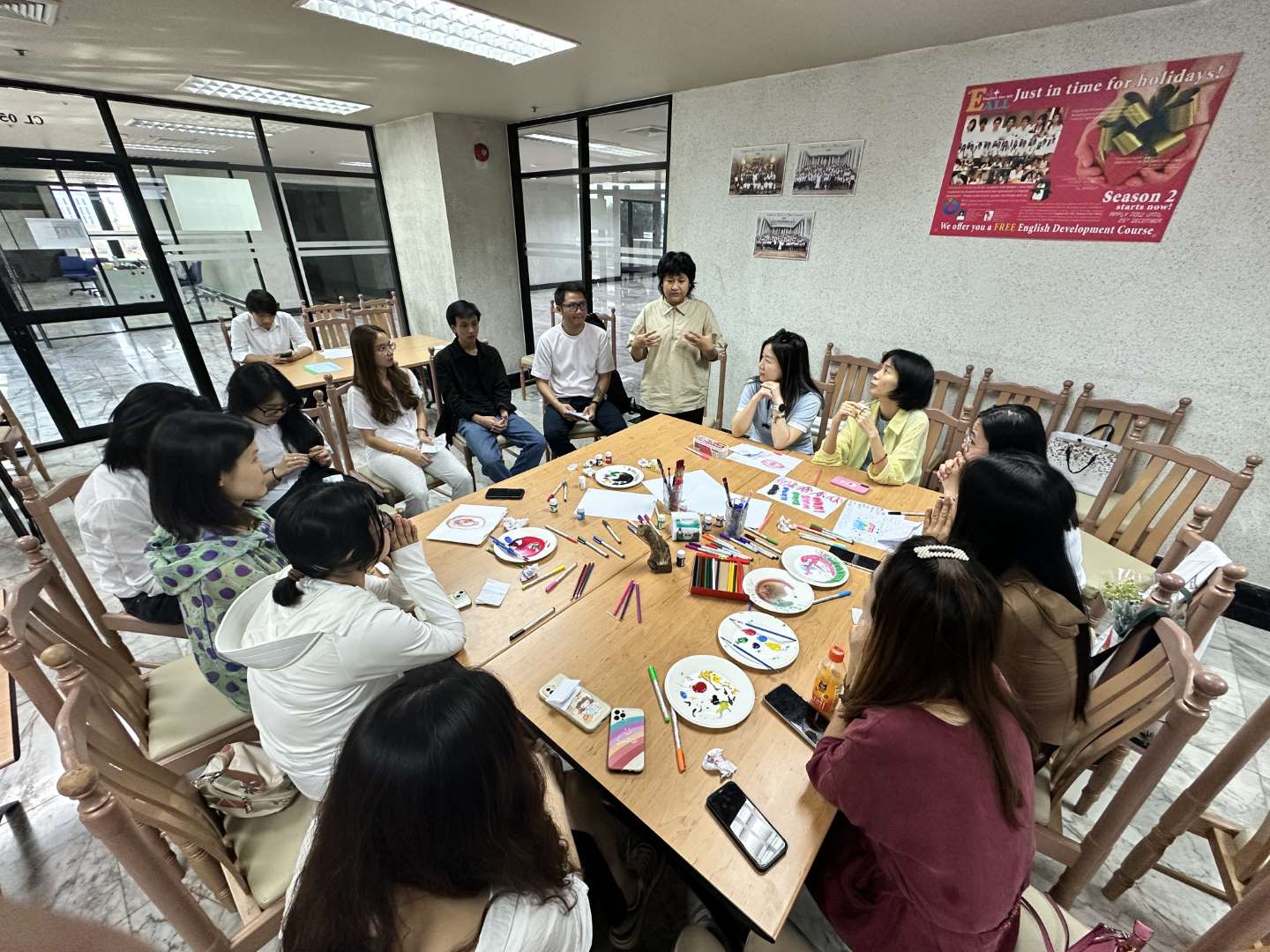Art has long been valued as a powerful means of self-expression, emotional release, and mental well-being. On February 3, Counseling Psychology candidates at Assumption University organized the ‘Art is My Therapy’ workshop in Room CL0505 on the 5th floor of the Suvarnabhumi Campus. This workshop provided participants with a unique opportunity to explore the therapeutic benefits of creative expression. Designed to alleviate anxiety and stress, it also aimed to enhance self-awareness, foster social connections, and support emotional regulation. The event welcomed a diverse group of Burmese and Chinese participants, who engaged in a series of activities focused on reflection, mindfulness, and artistic exploration.
Engaging Activities for Self-Discovery
The workshop began with an interactive icebreaker, ‘3 Facts About a Friend,’ where participants paired up and shared three personal facts before introducing their partners to the group. This exercise not only helped participants get to know one another but also fostered communication and connection in an inclusive and bilingual setting. A Chinese co-facilitator assisted as an interpreter, ensuring that language barriers did not hinder meaningful interaction.
To promote relaxation and mindfulness, the session proceeded with a guided Body Scan Meditation. This warm-up exercise allowed participants to tune into their physical and emotional states, setting a calm and introspective tone for the rest of the workshop.
Understanding the Role of Art Therapy
The facilitators introduced the concept of art therapy, explaining its impact on emotional expression, self-esteem, and cognitive and social development. Participants learned how creative practices can foster resilience, improve behavior, and offer effective coping strategies. The session underscored how art therapy can help individuals navigate challenges, regulate emotions, and build positive relationships.
Painting as a Therapeutic Outlet
The introduction to painting therapy emphasized its significance as a medium for self-exploration and healing. Participants discovered how colors and brushstrokes can symbolize emotions, offering a nonverbal way to process their feelings. The discussion highlighted the various benefits of painting therapy, such as stress relief, self-discovery, problem-solving, and emotional regulation.
Abstract Emotion Painting: Expressing Feelings Through Art
One of the most impactful exercises of the workshop was Abstract Emotion Painting. Participants were encouraged to let go of preconceived artistic expectations and instead use colors, shapes, and strokes to express their emotions. The free-flowing nature of abstract painting allowed for deep emotional release and self-reflection. Following the painting session, participants gathered in small groups to discuss their artwork, gaining insights into their own and others’ emotional landscapes.
Closing with Positivity: The Snowball Exercise
To conclude the workshop on an uplifting note, the facilitators introduced the Snowball Exercise. Participants wrote their names on individual pieces of paper, which were then randomly selected by others. Each person then wrote a positive statement about the individual whose name they had picked. These notes were crumpled into ‘snowballs’ and later opened, revealing heartfelt affirmations that reinforced self-worth and positivity. This final activity left participants with a tangible reminder of the kindness and encouragement shared during the workshop.
The ‘Art is My Therapy’ workshop provided a transformative experience for its participants, offering a safe and creative space for self-expression, emotional growth, and community building. Through structured exercises, meditation, and painting, attendees gained deeper self-awareness and developed tools for managing stress and emotions.
By highlighting the therapeutic power of art, this workshop underscored the importance of creative expression in fostering mental well-being and personal growth. Future sessions will continue to promote art as a valuable means of healing and self-discovery, further reinforcing its role as a supportive tool for emotional resilience and connection.
